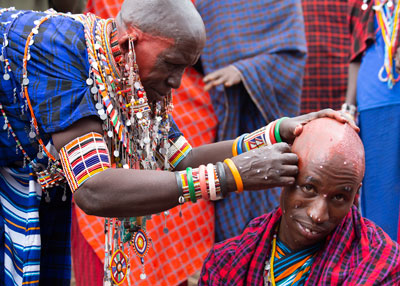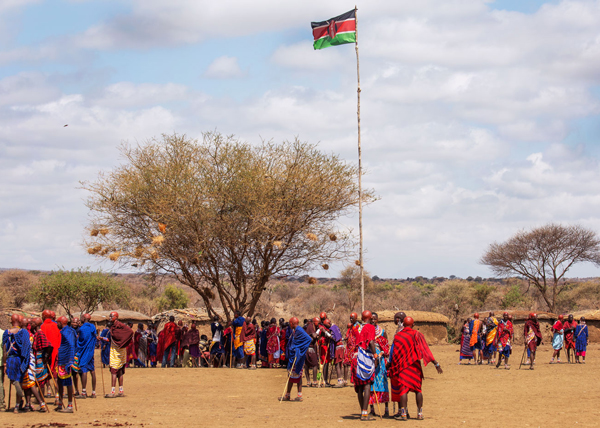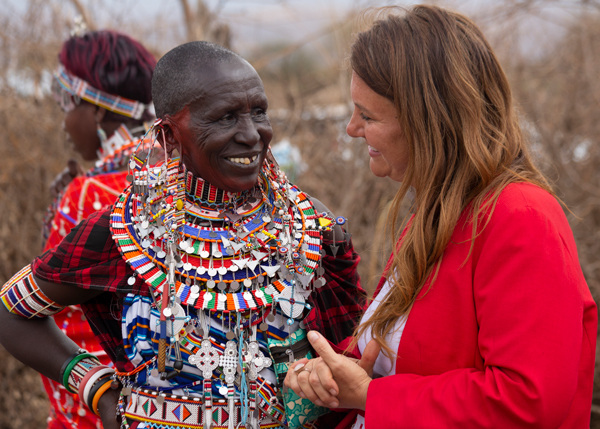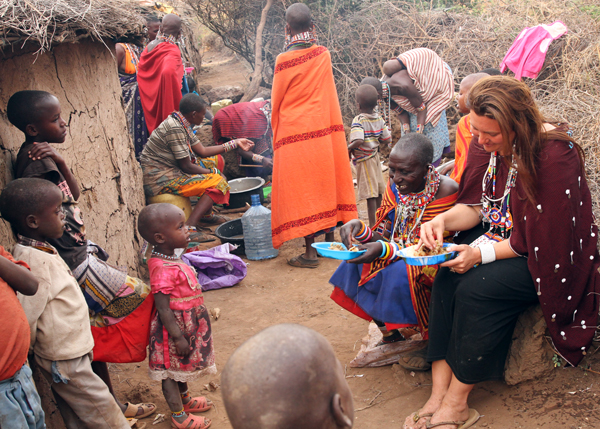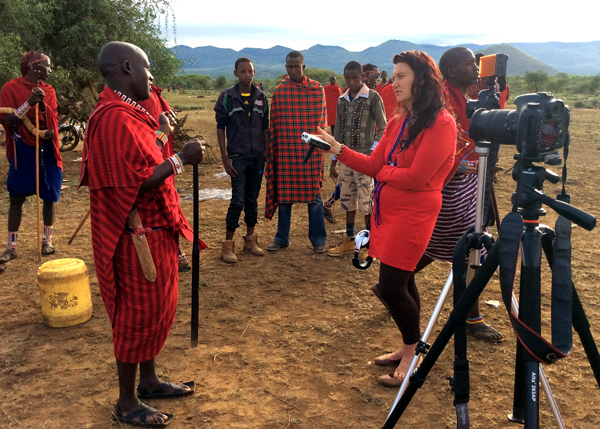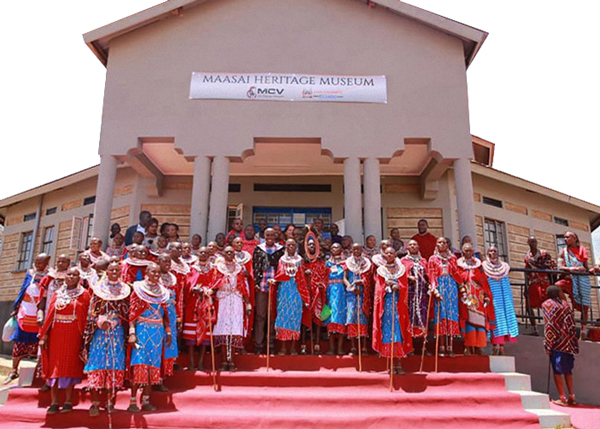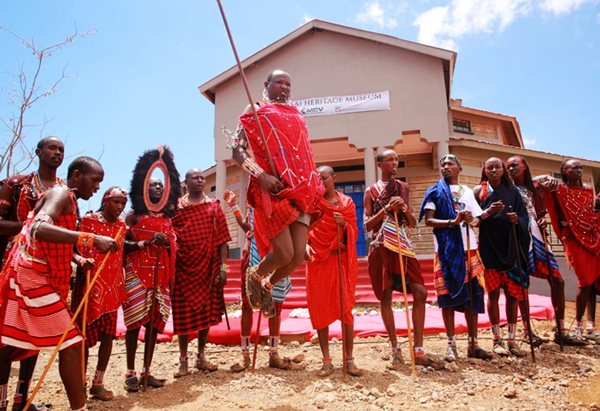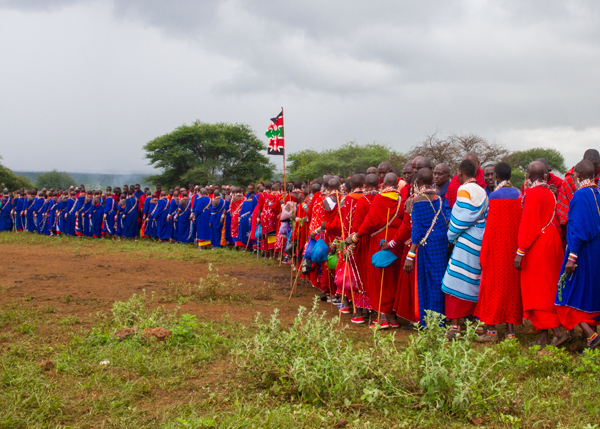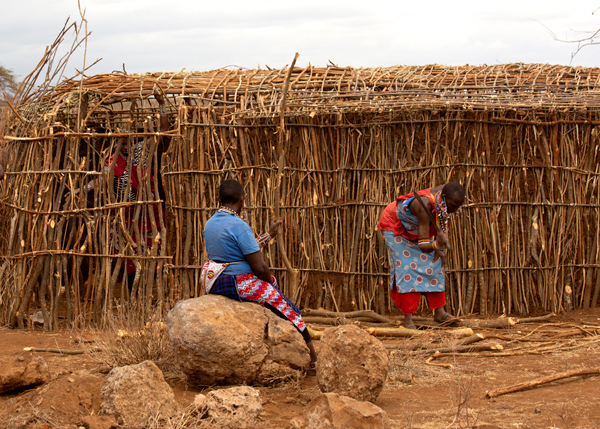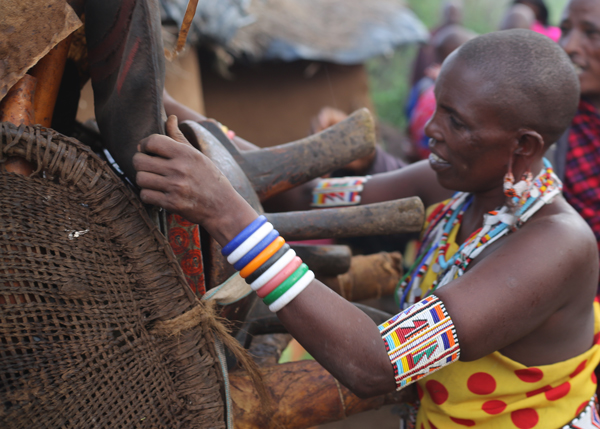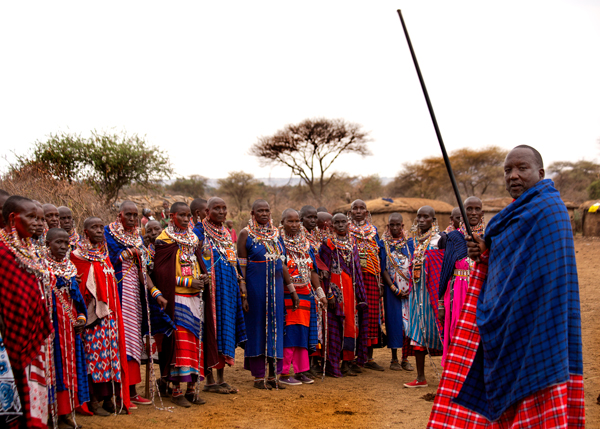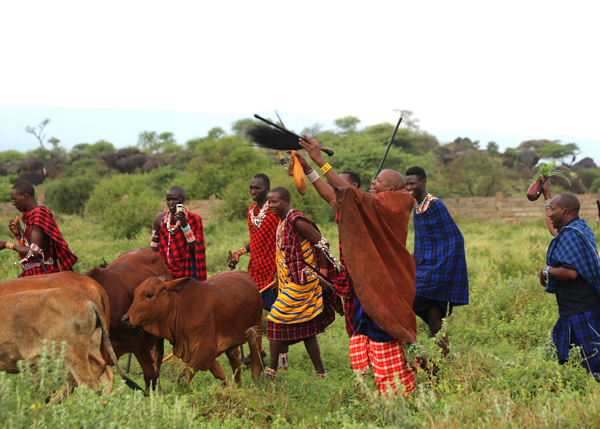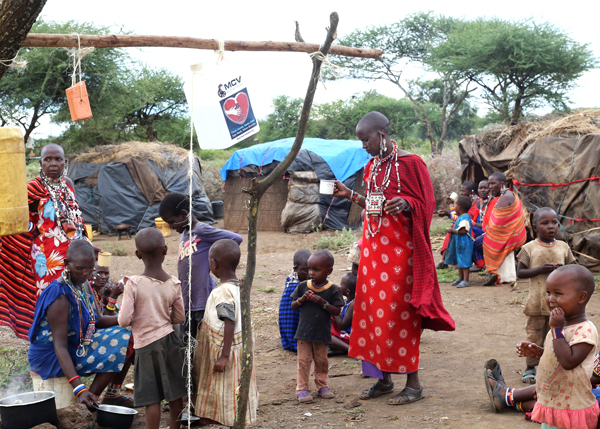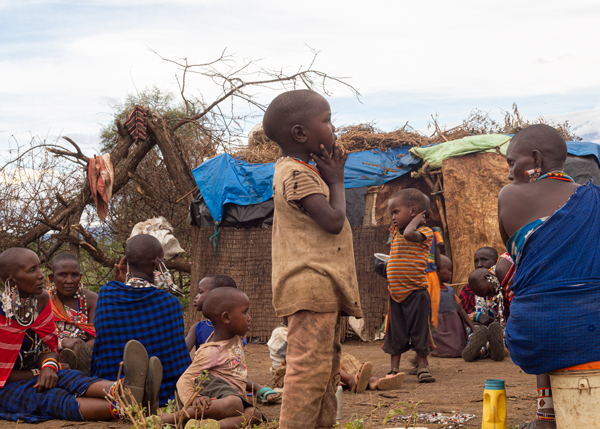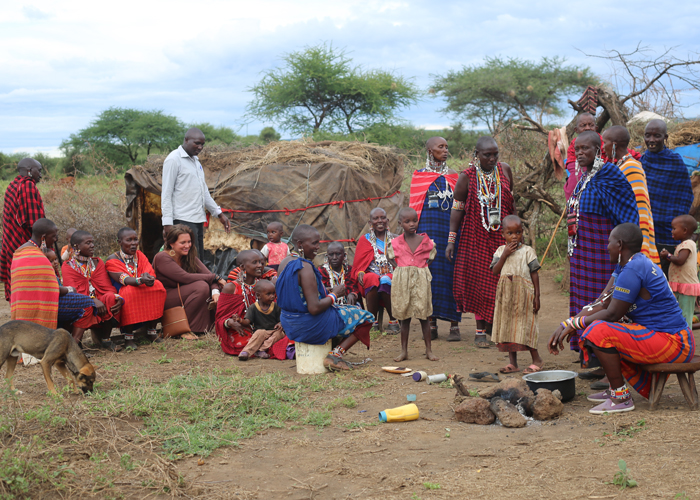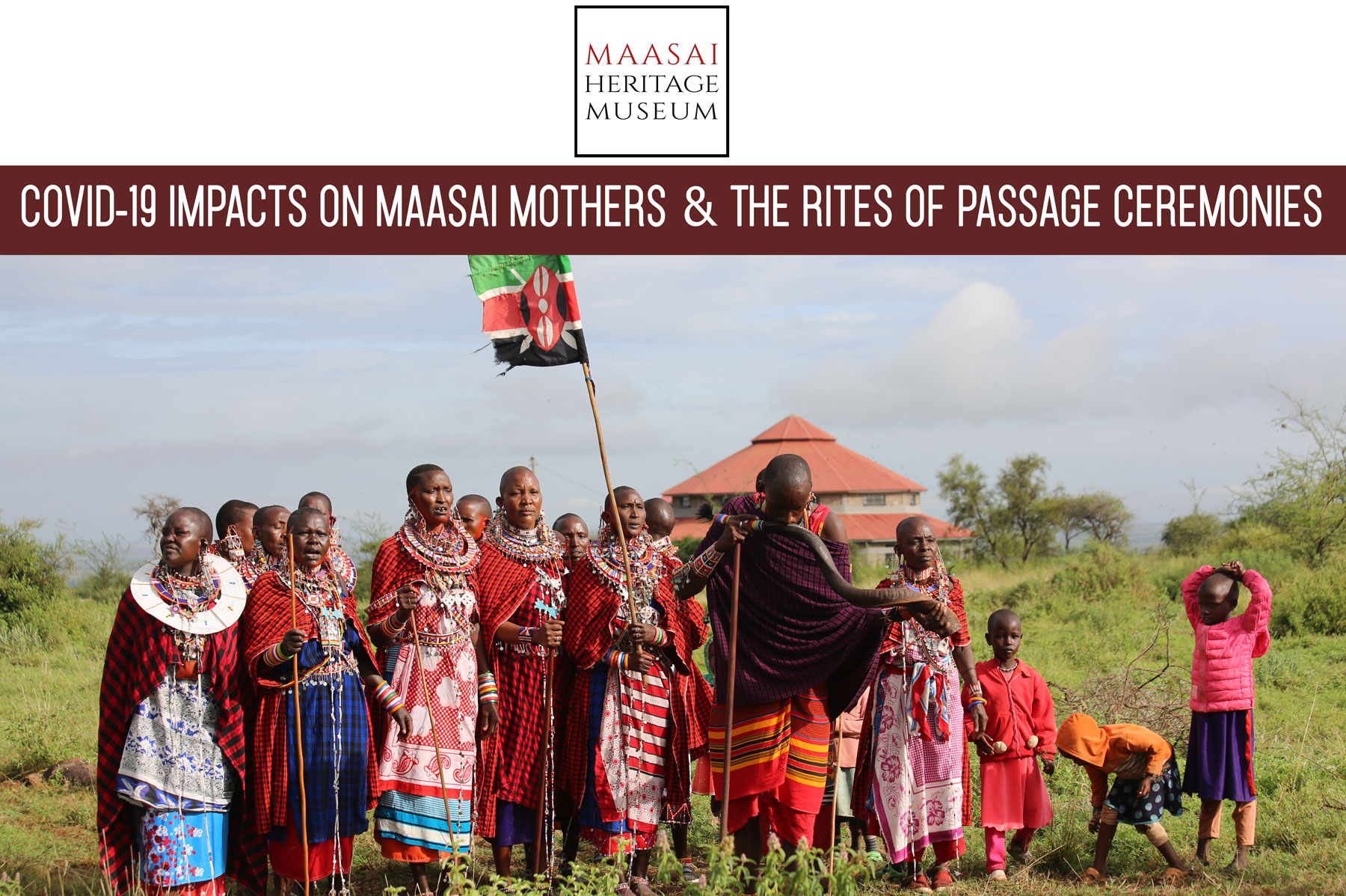
The Maasai Rites of Passage Ceremonies spans geography and time. These highly celebrated ceremonies with unique traditions that last approximately 20 years are greatly honored in the life of a Maasai. It prepares the Maasai warriors (morans) to become men and it teaches them to engage in the decision-making processes in the community to prepare them to become future elders.
A traditional practice that once was integral to Maasai life is now rare among many of its people. The Maasai are in a race against time to preserve their heritage for future generations, their traditional cultural knowledge is at risk of disappearing. Maasai are losing access to the communal land where these ceremonies traditionally take place, and with COVID-19's growing presence in Kenya, many Maasai fear that it may disappear altogether.
Maasai mothers hold a critical position within Maasai society as they nurture and develop their sons to become future leaders. The highest elders in Maasai society will pick the most beautiful and gifted mothers who can sing, dance, and pray to live together in a secluded region. While there, these women build homes and facilitate the growth and development of their sons who participate in the ceremonies. To be chosen is both an honor and a blessing, but it comes with significant challenges. Chosen mothers must leave their homes and families for over seven years.
The Maasai mothers and the warriors live in the Emanyatta (Maasai Warriors Headquarters) for over seven years in isolation, developing strength, courage, wisdom, and life skills. Once arrived at this cultural heritage site, the mothers construct 49 homes in a circle from which the warriors may come and go. With duties including the collection of water, livestock cultivation, meal preparation, and their son's cultural and social development, the Maasai mothers shoulder a great deal of responsibility throughout the ceremonies. They sing and dance beautifully, and facilitate traditional cultural practices such as 'Eunoto,' which is inscribed on UNESCO's Urgent Safeguarding List of Intangible Heritage where the mothers shave their son's hairs. Throughout the mothers' time together, they develop intense bonds and nurture communal prosperity, where they share everything.
The Emanyatta is both a physical location and a cultural heritage site that has hosted over ten generations of ceremonies and is integral to Maasai culture. Over the years, a combination of climate change and loss of land rights threatens the Emanyatta's place in Maasai culture.
Jessica Censotti, MCV President, first visited the Emanyatta in 2014, when the cultural chief was inaugurated, and from that time forward, her experience guided the mission of her organization: My Chosen Vessels (MCV), a registered nonprofit organization in the USA & Kenya that focuses on Maasai empowerment and cultural conservation. Instantly the moment Jessica stepped on the land, she was moved by the traditional culture, she spoke to Maasai leaders and mothers to learn about their traditions and over the past seven years, spent significant time at the Emanyatta. She built a home there and spent quality time documenting the ceremonies and cultural knowledge with the cultural custodians until they became family and it remains a special place she considers her home.
Early on, Maasai leaders expressed the importance of conserving Maasai culture within the structure of a museum, and in September 2019, MCV opened the Maasai Heritage Museum outside of Amboseli National Park. The Maasai Heritage Museum is playing a pivotal role in the maintenance, conservation, and revitalization of Maasai traditional knowledge.
In March 2019, the Maasai leaders agreed that the upcoming ceremony Enkishooroto Oolosho (Cow Giving Ceremony), should take place at the Maasai Heritage Museum. A handful of mothers were chosen to stay and complete the final portion of the ceremony, while others traveled back to homes they had not seen in over seven years. Those mothers separating held profoundly emotional goodbyes.
Once arrived at the museum, the mothers started constructing new homes, where they were planning to stay for several months for the duration of the ceremony, while others were planning to stay permanently.
When COVID-19 emerged in Kenya, their plans abruptly changed. Before they could finish constructing their homes and unpack their bags, the Kenyan government required the closure of all museums in order to comply with safety and social distancing guidelines, and the mothers who had just made the long journey of over 30 Kilometers carrying all their belongings to the Museum now had to find somewhere else to go.
The elders relocated the mothers and the warriors to a remote area in the bush where they would be isolated and out of reach from the exposure of COVID-19. The women live in temporary houses made of plastic sheets, they don't have electricity and the water source is far. It's has become difficult to continue the rite of passages during this COVID-19 pandemic, there has been a pressure to quickly end the ceremonies because the fear of being together in large groups and taking care of the mothers and their children, providing food and water is a major challenge since the economy has collapsed. These displaced mothers have now moved a total of five times, and are now residing in rural areas that lack access to many essential resources.
The Maasai are already fighting to preserve their ancient knowledge, but with the introduction of COVID-19, they must now battle the rapid spread of this novel virus. The actions we take now are critical to protecting the Maasai. MCV has a frontline response team to support Maasai communities with a COVID-19 that includes hygiene training, installing handwashing stations, and distributing soaps, water filters, food, solars, and bedding to families that need support during the pandemic. MCV worked with Maasai leaders to integrate COVID-19 awareness into Maasai songs, instructing individuals on social distancing, mask-wearing, and handwashing within their own language of Maa. Despite protective measures against the disease, however, the day-to-day challenge for Maasai leaders to continue practicing cultural heritage and the rite of passage ceremonies is a challenge.
Will You Help Maasai Protect Their Heritage?
The Maasai are eager to return to the Maasai Heritage Museum and continue the essential work of safeguarding their ancient heritage. Cultural conservation and women's empowerment guide the mission of the Maasai Heritage Museum. The Maasai mothers desire economic freedom, namely owning their own store at the Maasai Heritage Museum to sell beaded handicrafts to tourists that visit Amboseli National Park.


